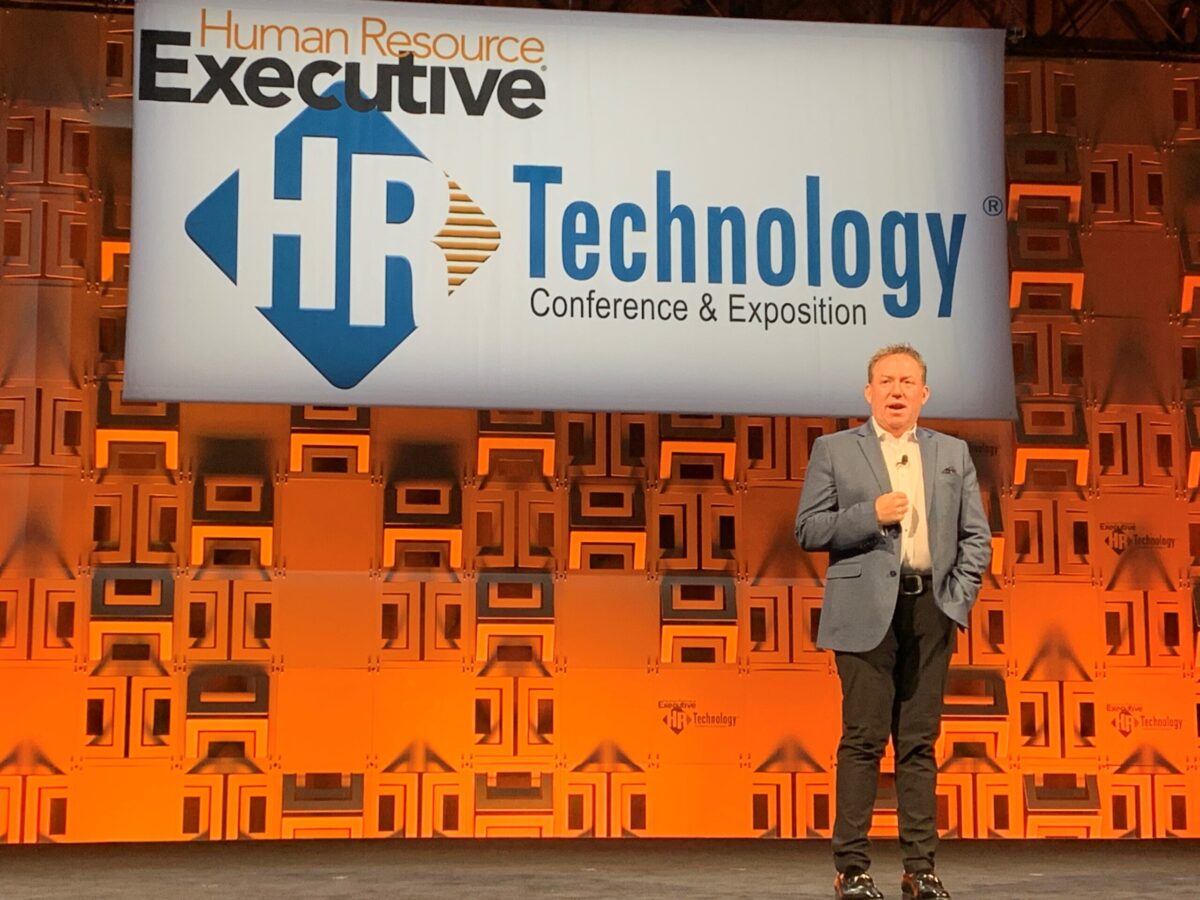According to a new report from Forrester Research, “AI injects both magic and mayhem into the future of work.” That’s a poetic way of saying that AI is creating both disruption and solutions in the same space right now, and for HR leaders, that space is the workplace.
Forrester’s paper, 2023 Generative AI Jobs Impact Forecast, U.S., emphasizes that while generative AI is expected to eliminate some jobs, exponentially more will be advantageously influenced by this technology. From robot bartenders in Las Vegas to chatbots that give faulty advice to the “Iron Man suit for recruiters,” the news cycle is full of anecdotes and data about generative AI taking over.
However, the Forrester report supports the viewpoint that most jobs will still need people, but that—for many—their work will be augmented by AI. This methodology is based on public financial documents and executive interviews, as well as Forrester’s proprietary primary research and surveys.
Investments in genAI
Forrester analysts predict that “generative AI will influence 4.5 times more jobs than it replaces” and that by 2030, the tech will augment more than 11 million U.S. jobs. Often, influence will manifest as enhancements to vendor offerings, they say. This was clearly demonstrated by the Top HR Tech products submissions the HRE team tested this summer. It’s been less than a year since the introduction of ChatGPT and investment in generative AI tools has soared and is expected to continue. Data from CBInsights reveals there are now 13 genAI unicorns ($1 billion-plus valuations), and that they reached this status about twice as fast as other unicorn companies.
According to Forrester, 55% of the AI software market will be centered on generative tools by 2030. Already, HR tech vendors are proposing embedded generative AI functions to chat with employees in a conversational tone, generate job descriptions to target needed skills, transcribe interviews, create emails to candidates, develop collaborative insights and offers answers and suggestions based on complex documents. It’s all work that can augment HR professionals’ current jobs.
There have been stark predictions about genAI. Earlier this year, Goldman Sachs suggested that 300 million full-time jobs could be automated. However, as noted by the Forrester report, concrete evidence for these predictions in real-world job data has yet to be proven. “Exaggerated forecasts, heart-wrenching anecdotes, general panic—it can be hard to see the scope of the fire amid all this smoke,” write report authors. “Only through analysis grounded in the most robust data can we understand the impact generative AI will have on jobs.”
Tech and skills management
According to Forrester’s predictions, individuals in roles requiring “judgment, insight and moral reasoning” are less likely to see their jobs replaced by generative AI. This aligns with the skillset typically possessed by HR leaders and executives, many of whom are now at the forefront of devising strategies to implement generative AI for their teams, colleagues and organizations. In fact, HR is largely the function tasked with evaluating vendor offerings, recruiting individuals with the necessary skills to work with AI and distributing its benefits throughout the organization.
HR leaders have been advised to hire and upskill workers with generative AI expertise. This summer, a report issued by the McKinsey Global Institute indicated that workforce development would necessitate that HR professionals expand their hiring approach. The report suggests that “employers will need to hire for skills and competencies rather than credentials, recruit from overlooked populations (such as rural workers and people with disabilities) and provide training that keeps pace with their evolving needs.”
Forrester analysts also predict that vendor offerings will impact employees: “It’ll change how users in a majority of roles in most industries do everyday things like write emails, build spreadsheets and put together presentations.” Forward-thinking HR tech vendors anticipated this shift and continue to enhance their products accordingly. Steve Boese, program chair of the HR Technology Conference and co-founder of H3 HR Advisors, notes, “The skills conversations have led to more development and innovation in many of the core areas of talent management like learning, succession planning, career pathing and more.”
Currently, researchers say, it is premature for many organizations to cut jobs with the expectation that generative AI can serve as a substitute. While the technology may seem ready, there is still a need to identify individuals with the right skills to drive employee success, business sustainability and end-user satisfaction.
Betsy Summers, a principal analyst on the Future of Work team at Forrester, will share her insights on creating a scalable talent pipeline with a skills-based approach at the HR Technology Conference. Register now.
Credit: Source link











